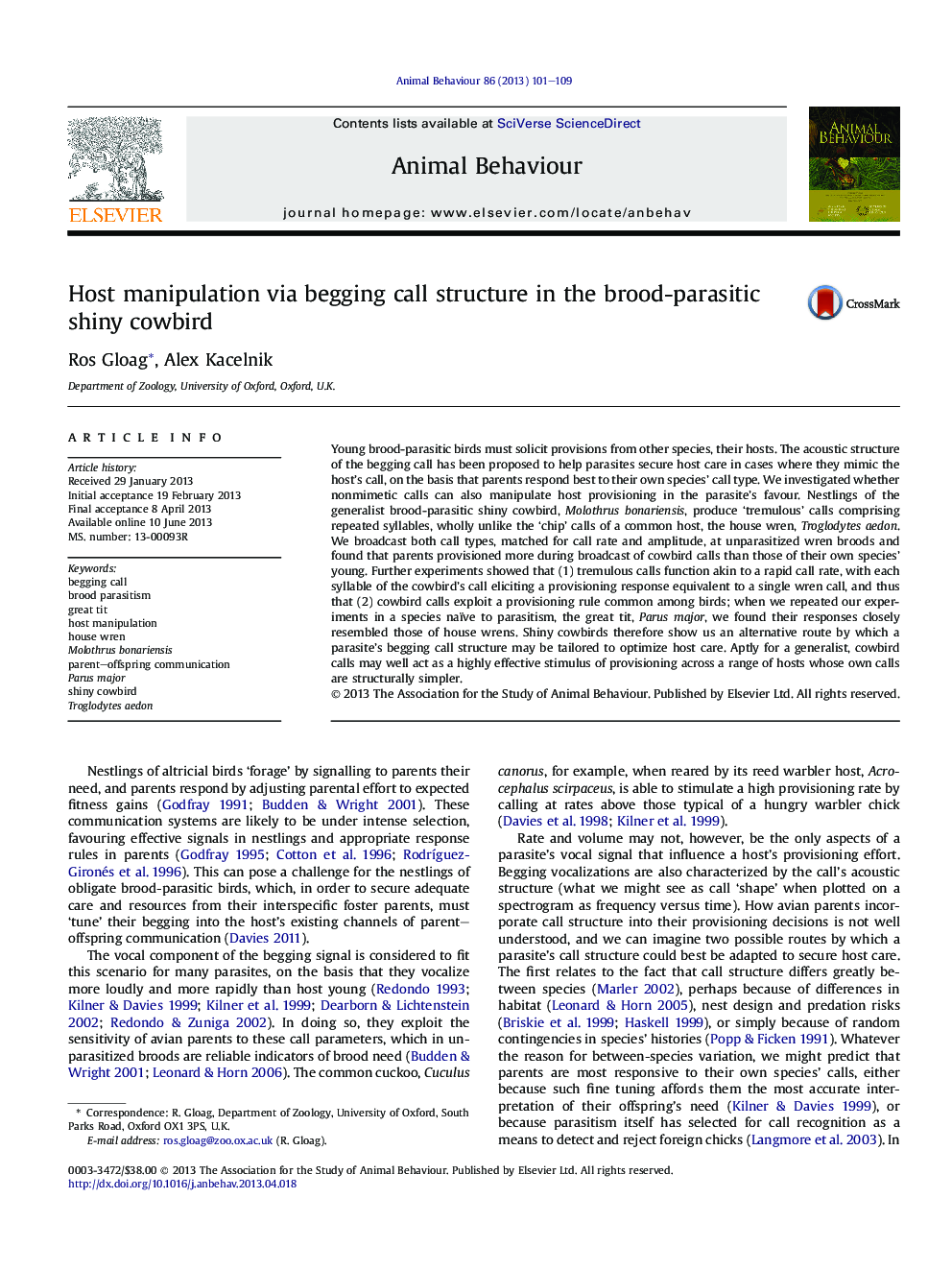| Article ID | Journal | Published Year | Pages | File Type |
|---|---|---|---|---|
| 10970691 | Animal Behaviour | 2013 | 9 Pages |
Abstract
Young brood-parasitic birds must solicit provisions from other species, their hosts. The acoustic structure of the begging call has been proposed to help parasites secure host care in cases where they mimic the host's call, on the basis that parents respond best to their own species' call type. We investigated whether nonmimetic calls can also manipulate host provisioning in the parasite's favour. Nestlings of the generalist brood-parasitic shiny cowbird, Molothrus bonariensis, produce 'tremulous' calls comprising repeated syllables, wholly unlike the 'chip' calls of a common host, the house wren, Troglodytes aedon. We broadcast both call types, matched for call rate and amplitude, at unparasitized wren broods and found that parents provisioned more during broadcast of cowbird calls than those of their own species' young. Further experiments showed that (1) tremulous calls function akin to a rapid call rate, with each syllable of the cowbird's call eliciting a provisioning response equivalent to a single wren call, and thus that (2) cowbird calls exploit a provisioning rule common among birds; when we repeated our experiments in a species naïve to parasitism, the great tit, Parus major, we found their responses closely resembled those of house wrens. Shiny cowbirds therefore show us an alternative route by which a parasite's begging call structure may be tailored to optimize host care. Aptly for a generalist, cowbird calls may well act as a highly effective stimulus of provisioning across a range of hosts whose own calls are structurally simpler.
Keywords
Related Topics
Life Sciences
Agricultural and Biological Sciences
Animal Science and Zoology
Authors
Ros Gloag, Alex Kacelnik,
